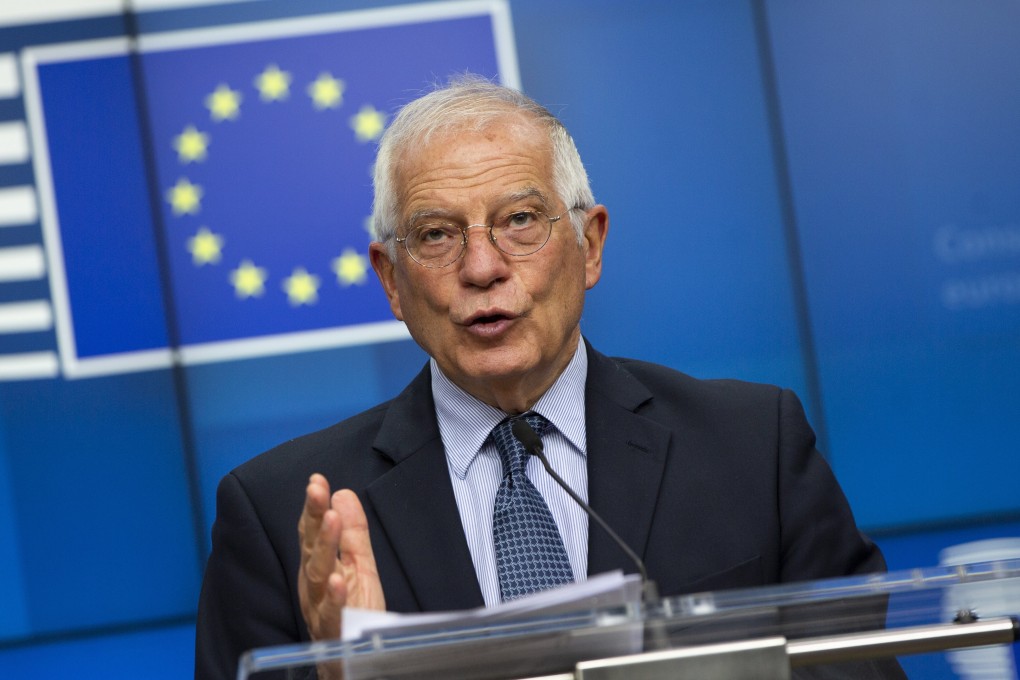Advertisement
EU plans dialogue with the US to deal with China’s ‘growing assertiveness’
- EU foreign policy chief’s suggestion comes just days ahead of Monday’s EU-China summit, amid an ensuing lack of commitment by Beijing on widening market access
- His proposal was a surprise to some, as his recent blog post seemed to suggest that the EU would not form a transatlantic alliance with the US on China
Reading Time:3 minutes
Why you can trust SCMP

The European Union plans to set up a bilateral dialogue with the US to deal with China’s “growing assertiveness”, the bloc’s foreign policy chief said after a call with US Secretary of State Mike Pompeo on Monday.
“I suggested to launch a distinct bilateral dialogue focusing on China and the challenges its actions and ambitions mean for us – the United States and the European Union,” EU High Representative for Foreign Affairs Josep Borrell told reporters.
Borrell’s suggestion comes just days ahead of Monday’s EU-China summit, amid an ensuing lack of commitment by Beijing on widening market access and level playing field for European businesses in China.
Advertisement
While US President Donald Trump has employed a hostile approach to the EU, Pompeo has been regarded as more willing to engage Europe in creating a united front against China.

The US State Department did not respond to a request for comment on whether it had agreed to the proposal to set up a bilateral dialogue on China-related issues.
Advertisement
Advertisement
Select Voice
Select Speed
1.00x